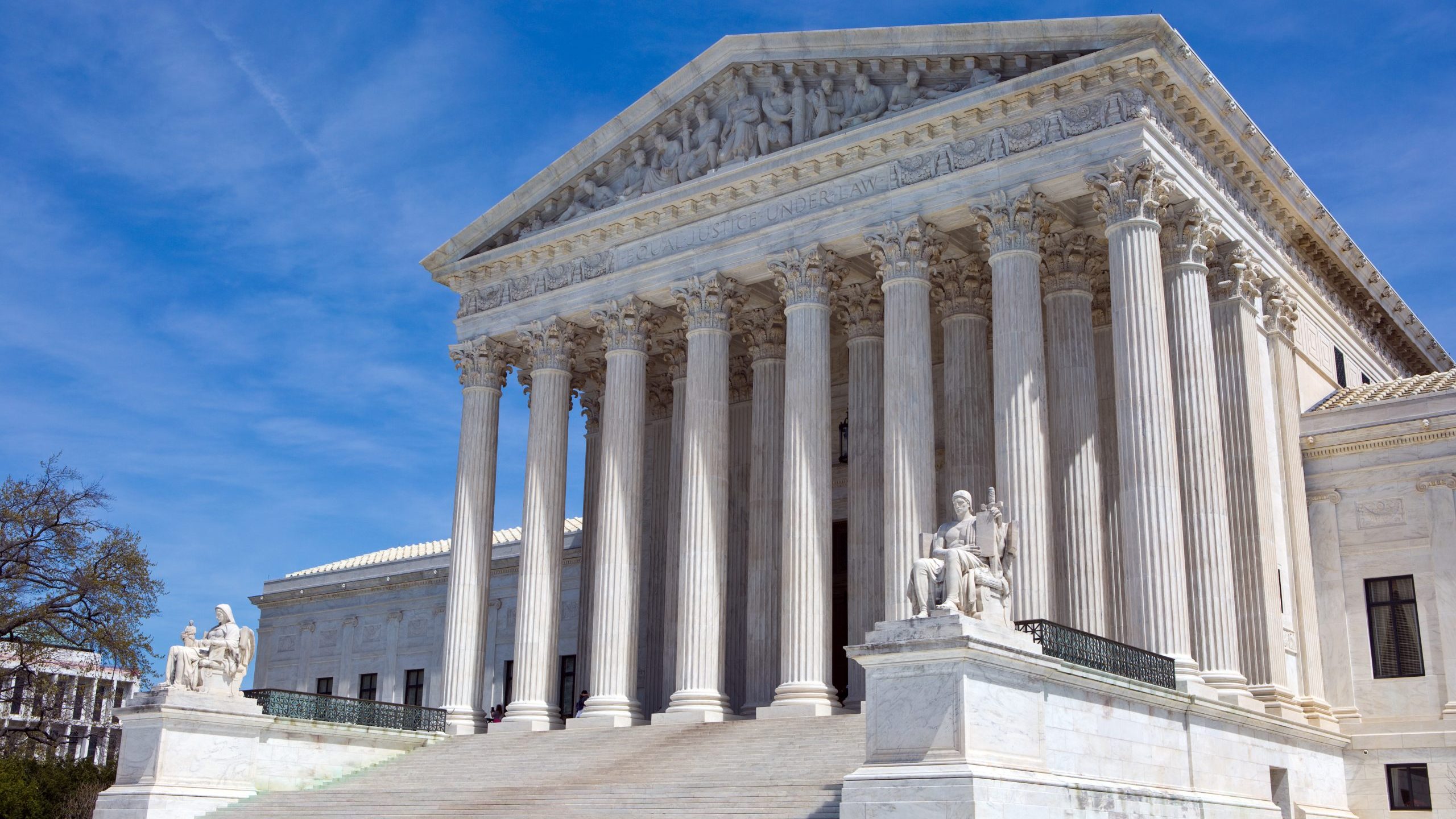In 2014, a Colorado ex-con named Billy Counterman sent a Facebook friend request to a local musician. She accepted. It was nothing new or different for an artist looking to develop her brand and grow her career.
But then the messages came.
For two years, Counterman sent an assortment of online missives via the social media platform to a woman he did not know and would never meet, strange, off-kilter things such as, “Good morning, sweetheart,” and “I am going to the store [.] [W]ould you like anything?”
Many of them, though, were more ominous, like “Was that you in the white Jeep?” and “Seems like I’m being talked about more than I’m being talked to. This isn’t healthy.”
Some of them were more direct.
“F— off permanently,” read one. “You’re not being good for human relations. Die,” read another. “Don’t need you.”
After two years of these messages — two years that included multiple attempts to block Counterman, only for him to resort to fake profiles that targeted both the musician’s public and personal accounts — she reported him to law enforcement. Counterman was then arrested and convicted on a single charge of stalking and sentenced to 4-and-a-half years in state prison.
Upon appeal, Counterman argued that none of his messages were explicit enough to rise to the level of a “true threat,” one of the few defined categories in First Amendment jurisprudence that places what could be protected speech squarely under the realm of criminal law. The Colorado Court of Appeals, though, upheld his conviction. “[T]his limited characterization of a true threat misses the mark by ignoring the importance of the context in which a statement is made,” the court wrote. “This approach thereby risks excluding true threats that may not be explicit but, when considered in context, are just as undeserving of protection.”
In siding against Counterman, the court, applying the law of the land for more than 50 years, used an objective test that asked whether a hypothetical reasonable person would understand that the messages in question would be taken as an expression of an intention to do harm. Counterman’s assertion that perhaps the government should have to prove something more as to his mental state (known in criminal law as a mens rea requirement) was so uninteresting to the Colorado Supreme Court that it declined to hear the case.
But last week, the Supreme Court overturned Counterman’s conviction and, with it, decades of precedent. Yet while this will change how courts and scholars talk about the law of violent speech, it remains to be seen what real world results this fresh precedent will achieve – and Counterman’s fate may still be within the stony confines of a Colorado state penitentiary.
Writing for a 7-2 majority, Justice Elena Kagan makes it clear relatively early in the opinion that the court is shifting the law on true threats, writing that, going forward, “the [s]tate must prove in true-threats cases that the defendant had some understanding of his statements’ threatening character,” a firm repudiation of the objective test in place since the Supreme Court’s 1969 decision in Watts v. U.S.
The rejection of the previous standard, Kagan argues, is necessary because to leave it in place represents a possible chilling effect on speech. “A speaker may be unsure about the side of a line on which his speech falls. Or he may worry that the legal system will err, and count speech that is permissible as instead not,” Kagan writes. “Or he may simply be concerned about the expense of becoming entangled in the legal system.”
But it’s not like the court hasn’t been faced with this question before. Less than a decade ago, the Supreme Court heard the case of Elonis v. U.S., which, like Counterman, involved violent speech transmitted via Facebook. In Elonis, the defendant was convicted on four federal charges of making threats in interstate commerce as he posted menacing “jokes” and rap lyrics pointed in the direction of his ex-wife, local schools and law enforcement and even the FBI. On appeal, he raised the same objection as Counterman, that the government had to prove some degree of mental culpability before it could convict him. He argued for the highest standard possible, an intent or purpose requirement that would burden the government with proving that he intended to threaten those individuals targeted by his posts. The court, though, dodged the First Amendment question, deciding only that he had been convicted via a faulty jury instruction. (On remand, Elonis’ conviction was upheld.)
In Counterman, however, the court faced the question head on, whether to continue with the status quo objective test for true threats or switch to a standard – perhaps the very one that Elonis argued for in 2014 – that would be more protective of speech and possibly less protective of people who might be reasonably afraid of both online and offline violent speech. Yet the court chose a third way: imposing a new mens rea standard but setting the government’s burden to only that of recklessness, which is, as Kagan defined it, when a defendant “consciously disregard[s] a substantial [and unjustifiable] risk that the conduct will cause harm to another.”
Recklessness is an interesting place to land for at least two reasons, both of which are highlighted in the court’s opinion.
First, it’s less demanding than the intent requirement to convict a defendant for incitement; as Kagan points out, the elevated standard is necessary because incitement tends to brush up close to political speech, whereas threats are of lower overall value in our First Amendment firmament.
Second, recklessness is the same standard in defamation suits involving public figure plaintiffs, which gives us decades of case law that might help us interpret the new true threat mens rea requirement. As Kagan writes, “reckless defendants have done more than make a bad mistake. They have consciously accepted a substantial risk of inflicting harm.” That formulation sounds like the actual malice interpretation of deliberately looking away from the truth when publishing defamatory material regarding public figure plaintiffs.
Counterman’s case has been returned to the Colorado courts; as Kagan and the majority concluded, he was convicted under the previous objective standard, and the Constitution can no longer abide such a decision. Now, the government will have to prove that he acted recklessly with his Facebook messages, and the central question will be whether he consciously disregarded evidence that his messages could be interpreted as threats.
Counterman engaged in a one-sided conversation over a period of two years. Two years in which he was blocked and continued to use language that would normally be viewed as — at the very least — ominous. That does, indeed, sound like more than a “bad mistake.”
After the court’s decision, perhaps the internet is a bit more free, preserving a forum in which people can continue to communicate without fear that an errant word or poorly interpreted joke could result in criminal charges and even a conviction.
But with every decision comes consequences.
For the sake of those possible targets of violent and truly threatening speech — speech that can terrify, disrupt and dismay — we can only hope those consequences will be minimal.

















































